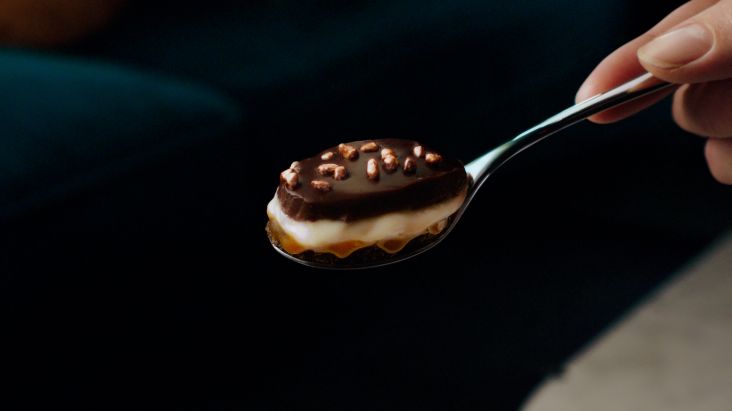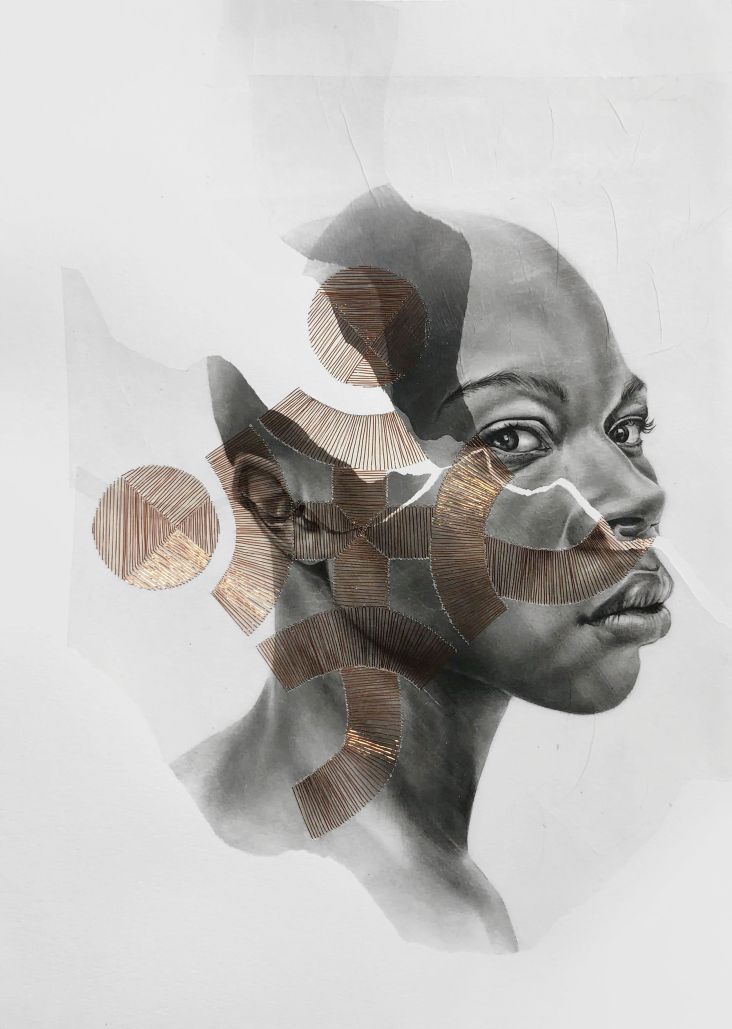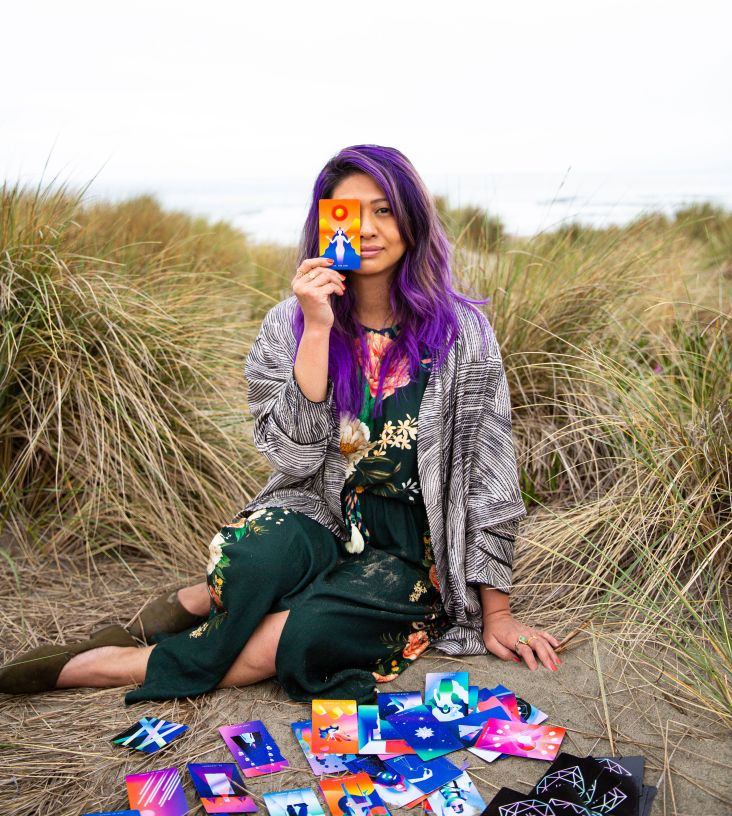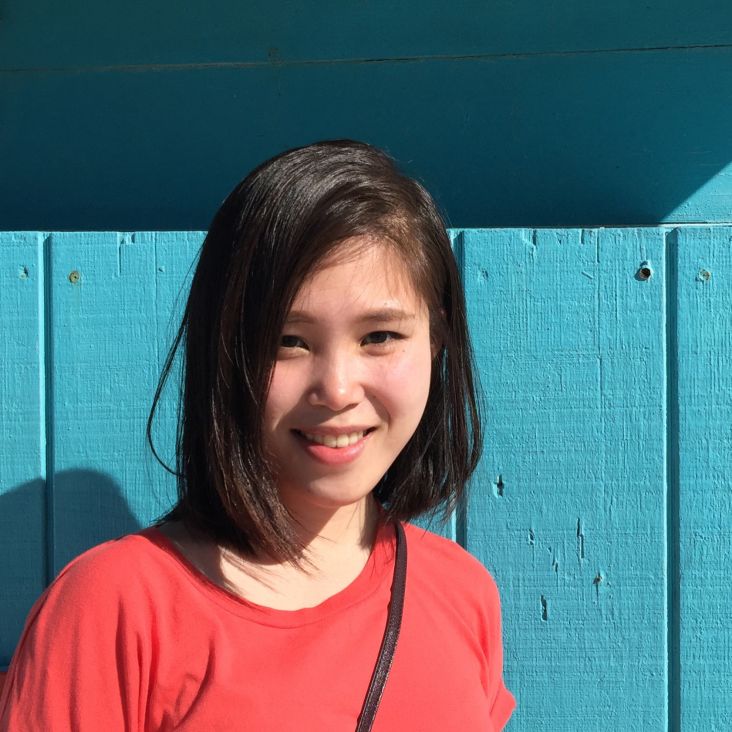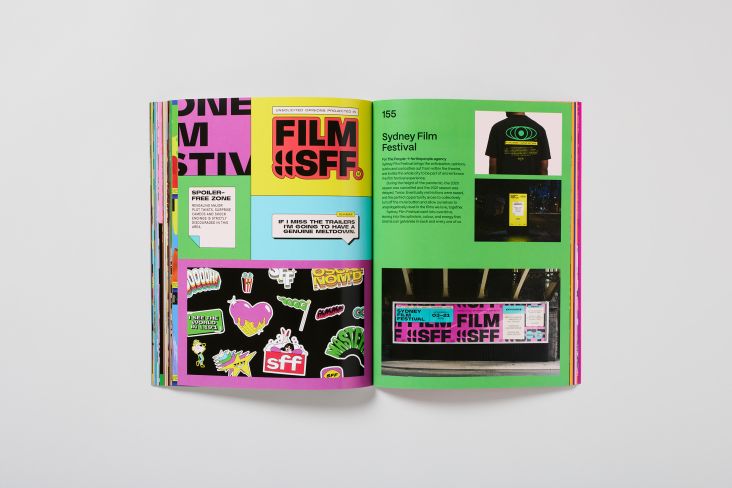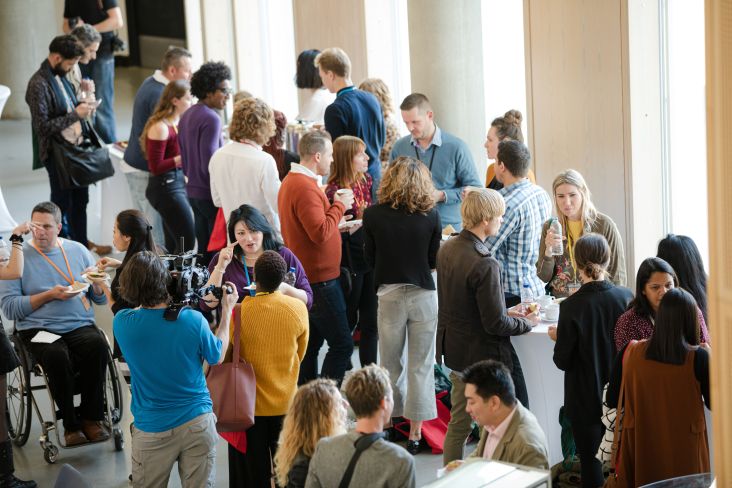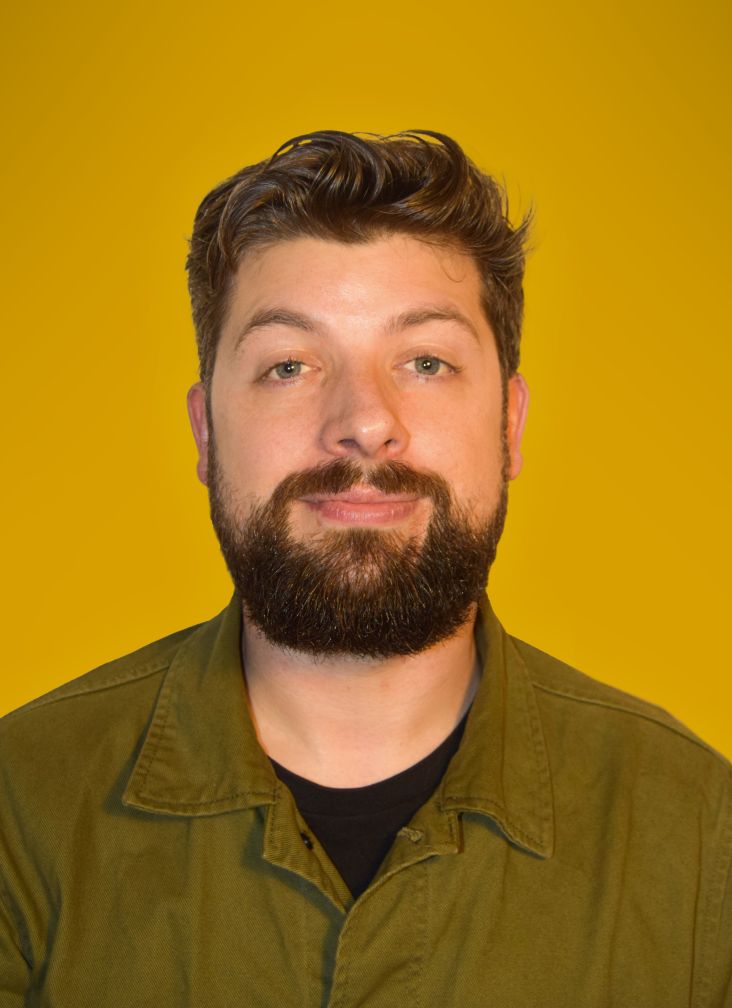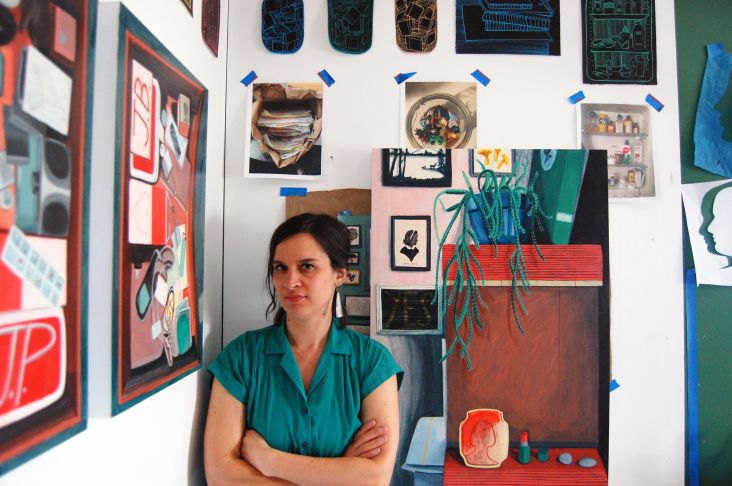UAL graduates Vassi Deij and Frieda Bischoff on how to launch a sustainable startup
Want to use your creative skills to change the world for the better? UAL postgraduate students Vassi Deij and Frieda Bischoff did just that by founding Renée Materials. In our exclusive interview, they explained how they went about it.
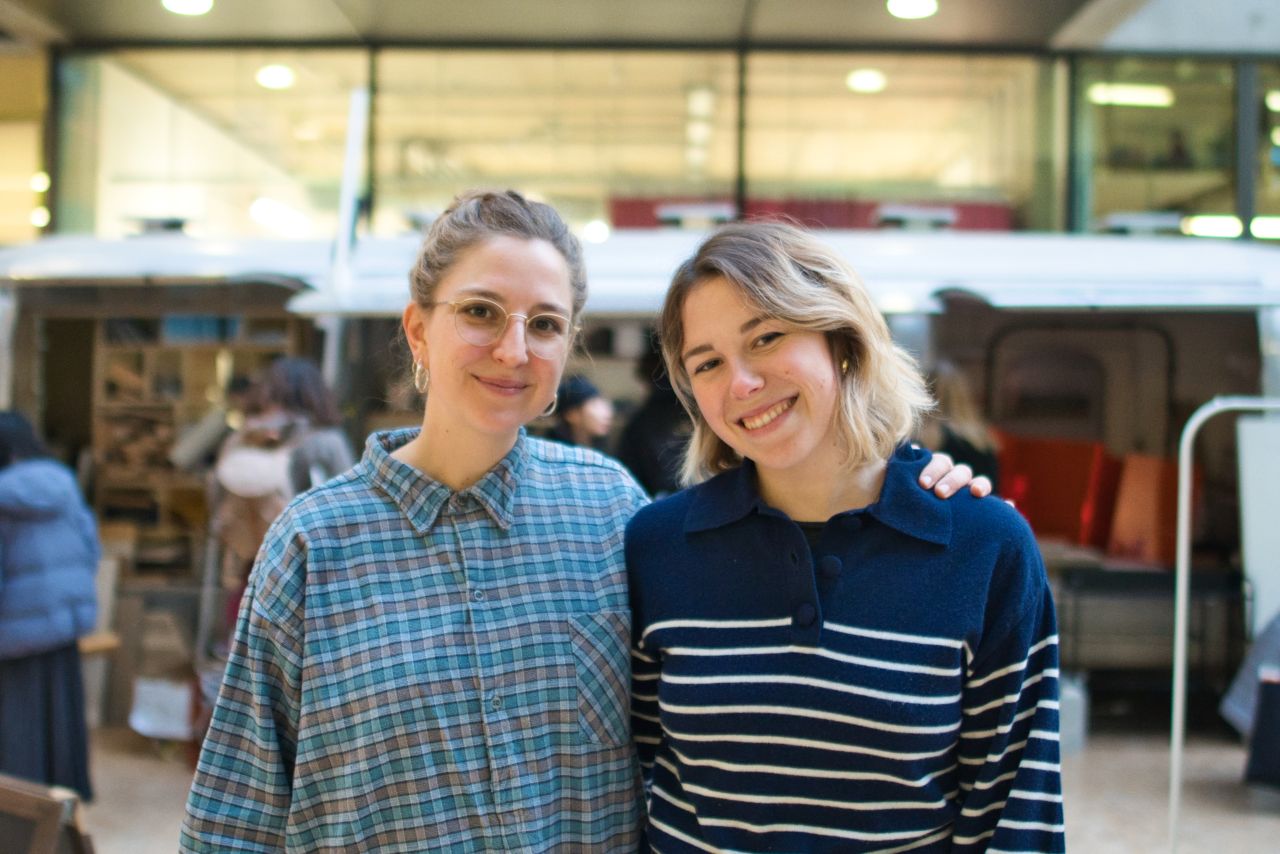
Photography by Luca Giraudo
Manufacturers produce a lot of waste materials, and disposing of them costs them money. Creative students need materials and don't have much money to buy them. Vassi Deij and Frieda Bischoff, two students studying MA Design for Social Innovation and Sustainable Futures at University of the Arts London (UAL), have founded a startup that solves both those problems in one go.
Renée Materials matches companies who have reusable material with students, creatives and makers who need it for their projects. It's a simple idea but one that's beautifully effective: to date, they've matched over 40 donating companies with over 1,000 students to put over three tonnes of waste to productive re-use.
We sat down with Vassi and Frieda to find out how they got the idea, how they went about launching it, and how they plan to scale it in future.
The idea
The gestation of the company began a few years ago before the pair had even met, explains Frieda. "I was walking through the streets of Peckham in London and saw a roll of paper being thrown away outside a print shop," she explains.
"It was perfectly usable; it was just slightly damaged. I was a fashion student then, and I thought: Wow, something like that would be incredibly useful for me, but very expensive to buy new. I could use it for patterns. I could use it for different creative variations and projects."
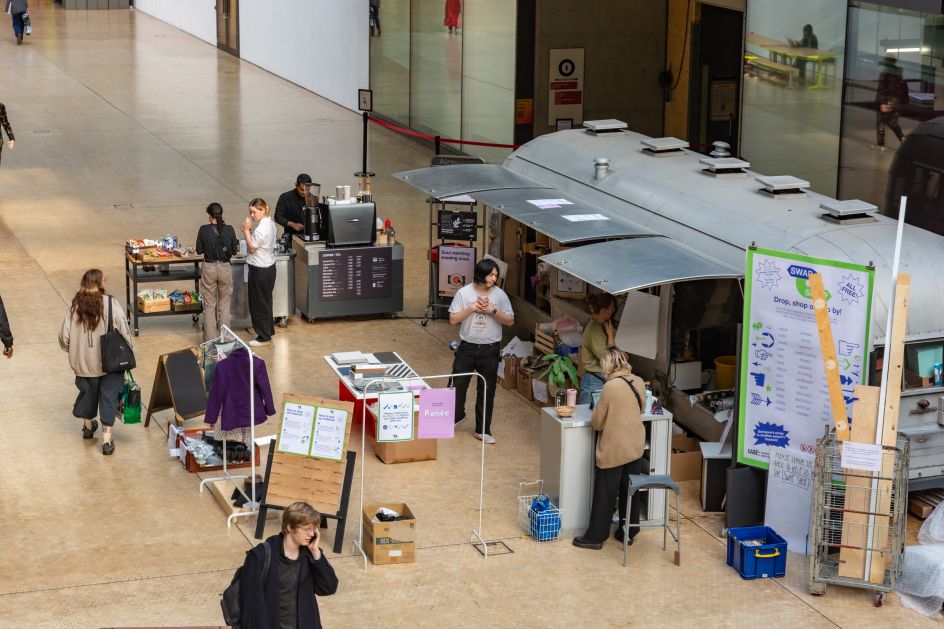
Photography by Jamie Johnson
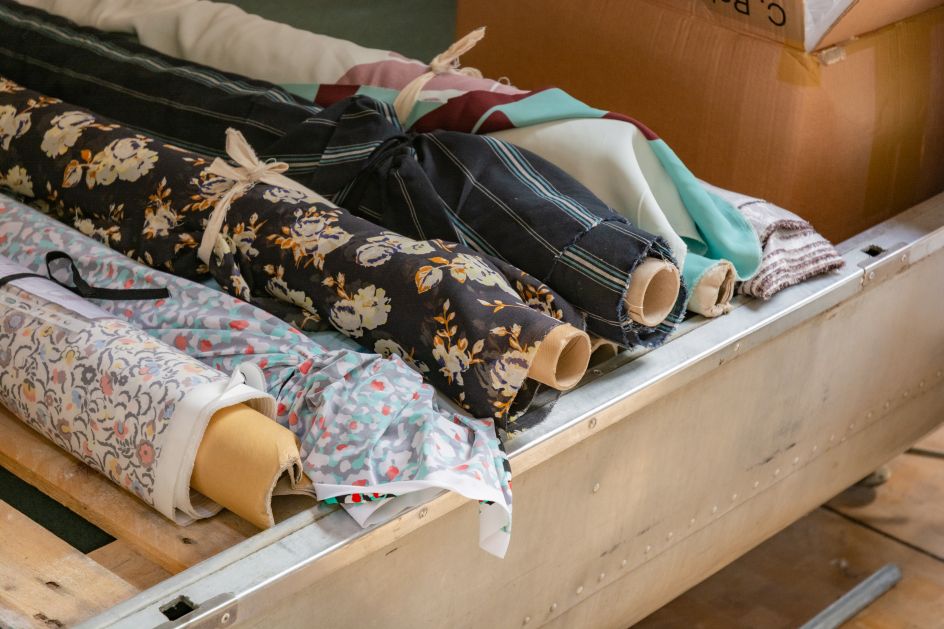
Photography by Jamie Johnson
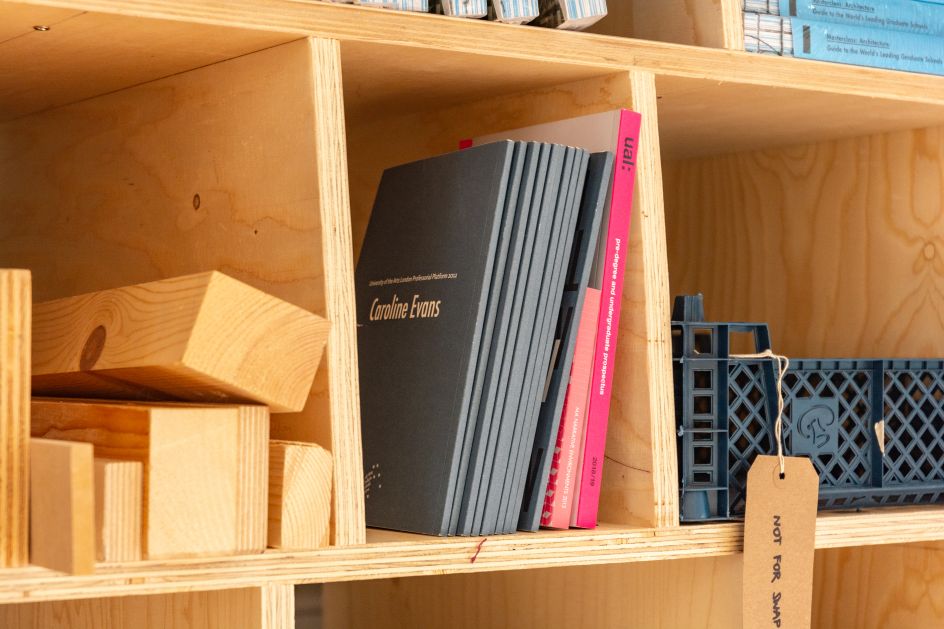
Photography by Jamie Johnson
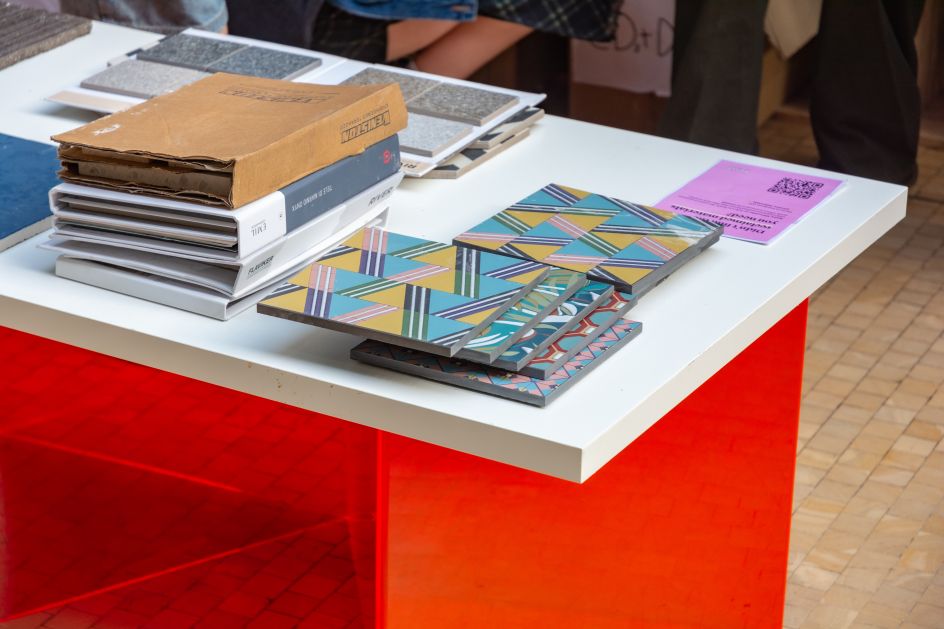
Photography by Jamie Johnson
And that's where it hit her. "I thought: 'This is considered waste because it's the wrong time at the wrong place with the wrong name. But that doesn't mean it's not useful to someone now. It just means it's at the wrong place'."
That's when the idea started boiling in her head – that designers should have access to this excess material that companies throw away. Around a year ago, Frieda met Vassi and told her about her idea. "So we started brainstorming," says Vassi. "Trying to understand what were the values of this product and what this product actually was."
To get a better sense of how this could work effectively in practice, they started interviewing people, both students and representatives of companies. "We tried to work out what the behaviours were, what the needs were, and how we could facilitate this kind of exchange in a way that wasn't too much hard work for either students or businesses," says Vassi.
The physical store
Based on their findings, they decided to open a physical hub to see how the idea would play out in practice. "We believed in the idea, but we didn't really have proof of concept, any numbers that would prove to people it could actually work," recalls Frieda. "Our original idea was to make an app, but ultimately we decided the digital marketplace was something which couldn't work at the very beginning. That's because you need a critical mass on both sides, and many, many people, so that you find these matches."
So instead, just to get started, they opted for a physical store and reached out to the UAL Climate Emergency Network for help and advice. "They had space that they wanted to set up as the Swap Shop," explains Vassi. "And after a while, they said: 'Why don't you coordinate with us to manage it and see how that goes for Renée?' So that's how it began."
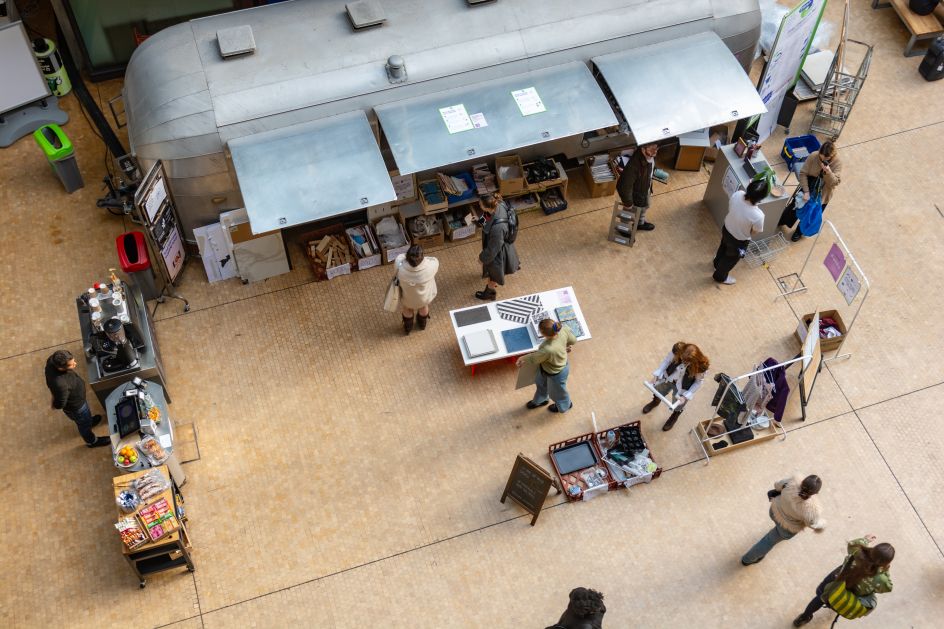
Photography by Jamie Johnson
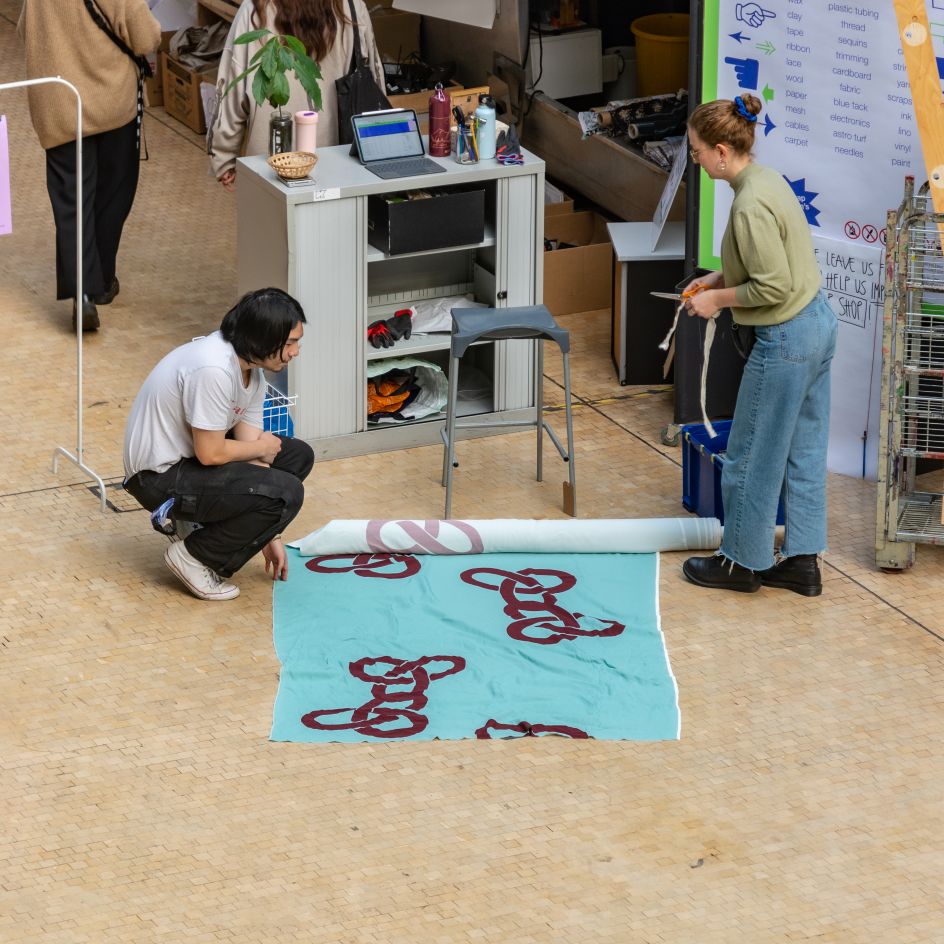
Photography by Jamie Johnson
The Swap Shop is a Circular Material Hub dedicated to unwanted materials that can be re-used, re-purposed or repaired. "The position is great because we are in The Street of Central Saint Martin's , which is this wide open space where everyone passes," explains Frieda.
Students can either drop off, pick up or borrow displayed materials. All these materials have been either donated by the University's workshops, facilities, staff and students or by external companies or organisations that are part of Renée's network.
The digital presence
The Swap Shop, however, was just the beginning. First, they set up an Instagram account and once that had got some traction, in November, they launched the Renée website.
It's been beautifully designed with a warm, cartoony feel. If you're looking for material, it makes it easy to filter by categories, including wood, paper, metal, textiles, plastics and more. It also makes it easy for companies with waste material to share to contact Renée Materials and discuss partnerships.
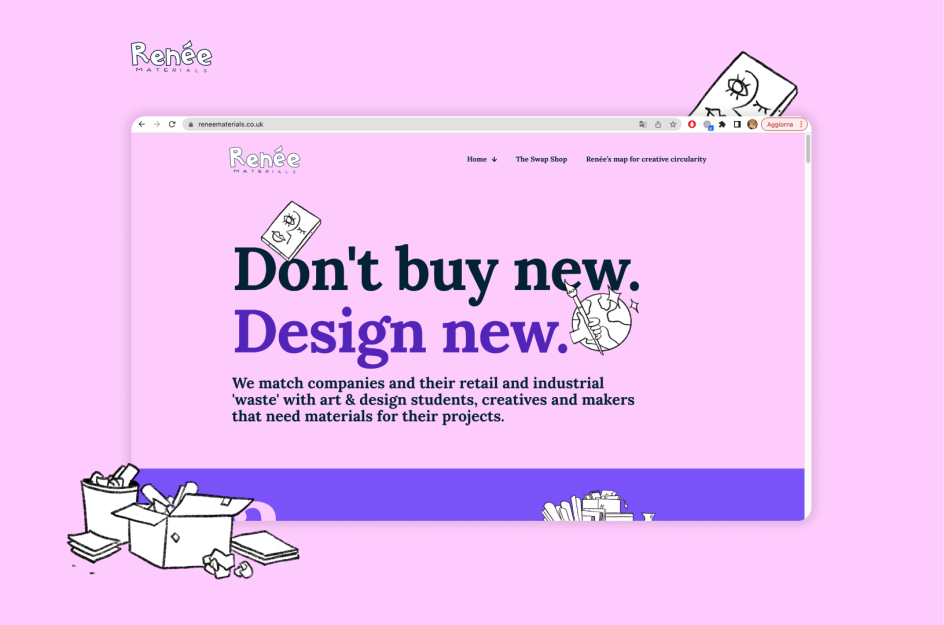
The website design for Renée Materials
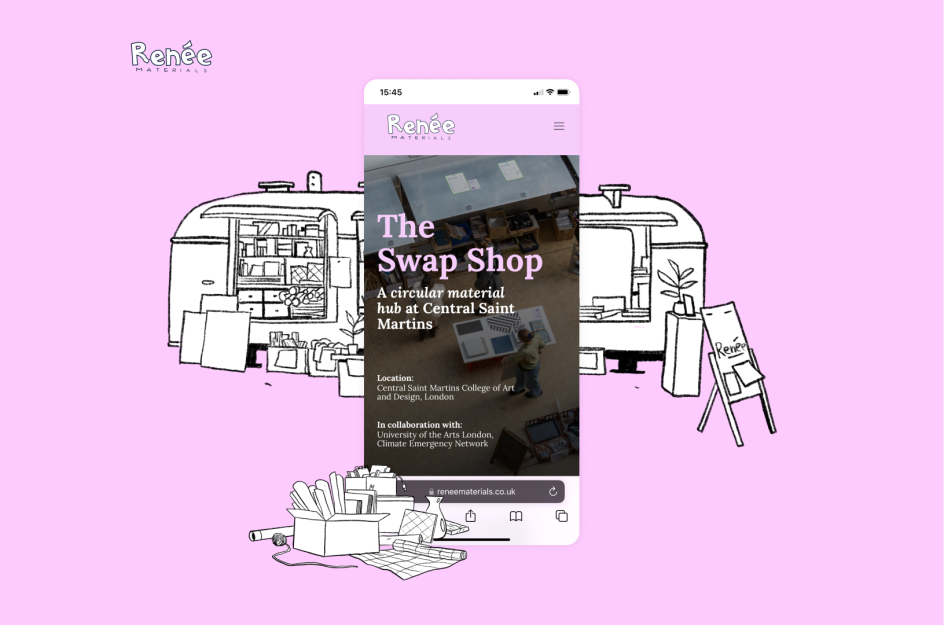
The brand identity rolled out for Renée Materials
And firms have flocked to get involved. "We've had, for example, fashion houses such as JordanLuca, and Phoebe English," says Frieda. "We've had donations for paint from the Wellcome collection and the Veolia recycling centre. We've had a big donation of tiles from Reed Harris. So a lot is coming in."
Day-to-day operations
Now the pair have graduated from UAL, Vassi has returned to Italy, where she spends three days a week at Hello Tomorrow, the creative agency she founded in 2020, and two days a week on Renée. Frieda, meanwhile, has stayed in London. "I work at the Swap Shop for three days a week, helped out by two shop assistants," she explains. "Then the rest of the days are spent writing applications for funding and networking."
Crucially, the Swap Shop keeps careful records of what materials students have taken and their weight, to help record and analyse the impact the project is having. "We ask they send a picture of what they've done with the materials so that we can understand how useful it was," says Frieda. That's also a subtle but effective way of ensuring the materials really do get put to good use and aren't just hoarded. Furthermore, all the offcuts, or the finished product if unneeded, can be returned to be creatively re-used by someone else.
Frieda adds that the Swap Shop is careful not just to take anything and dissuades students from donating items that might be better off in charity shops. "If a T-shirt, say, is perfectly fine and doesn't have any holes, it would be better off there; unless it's really eccentric, and you can use it for sets."
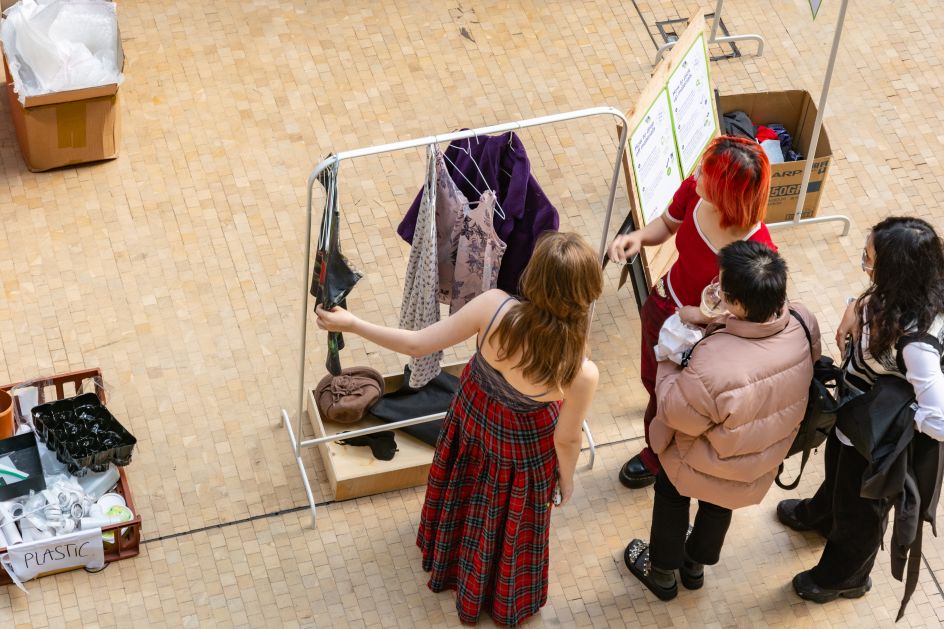
Photography by Jamie Johnson
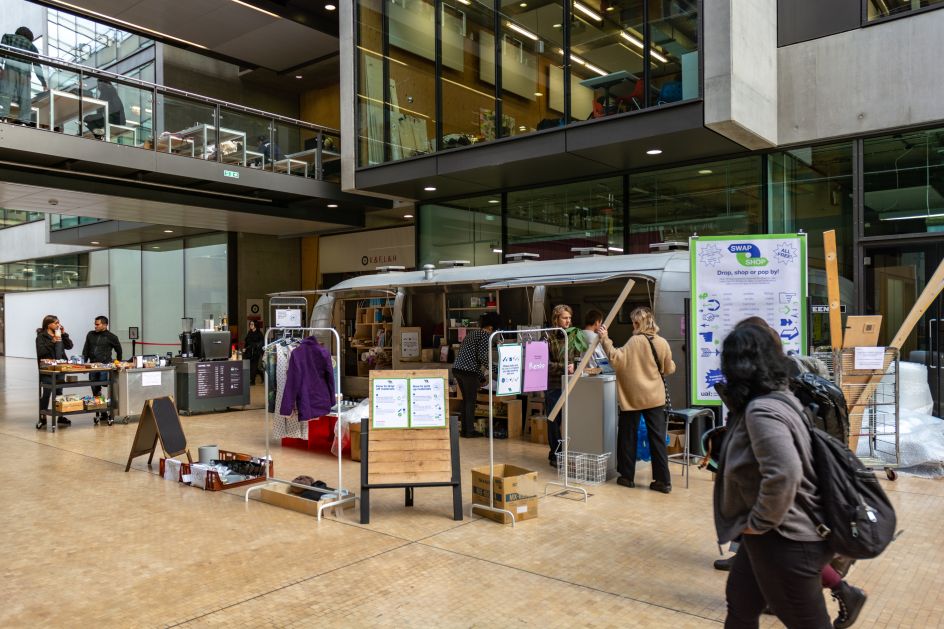
Photography by Jamie Johnson
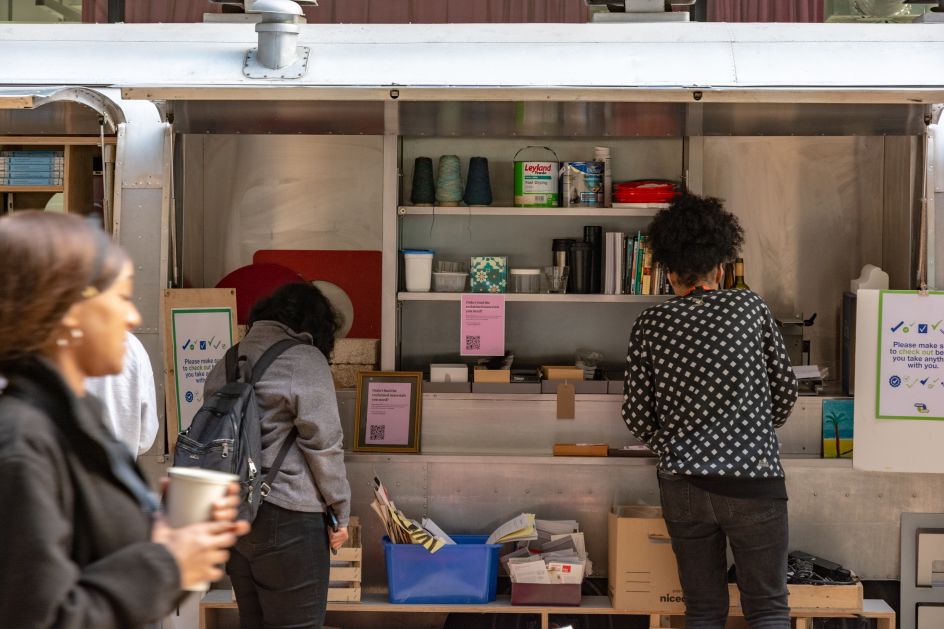
Photography by Jamie Johnson
Scaling things up
Right now, the bulk of materials donated by companies are being distributed via the Swap Shop, but Vassi and Frieda plan to open things out to non-students in the future. "We've been testing out different methods of sharing materials, such as posting on Instagram the type of material that's been given away and saying you can find it at this or that place," says Vassi. "But ultimately, our scaling idea is to have different material hubs, not only within universities but within different creative institutions and maybe also in the city."
"We're also considering asking whether companies can keep some of their waste in-house," she adds. "And if we can find a way for creatives and makers to go and pick it up. Because transport is also something we want to be efficient with, we want to avoid having vans coming in and out of the university all the time because it's not 100% sustainable."
The company was only founded a year ago, so such ideas are still in their infancy. But ultimately, says Frieda, they'd like to see a world without wasted material. "The idea in the last 30, 40 years has been that recycling is the solution for waste. But with Renée, we say that actually, if you look at the hierarchy of waste, there should be no waste. Because if you re-use something, you use it with the material properties it had from the beginning. You don't have to melt, shred, or downcycle it as with recycling."
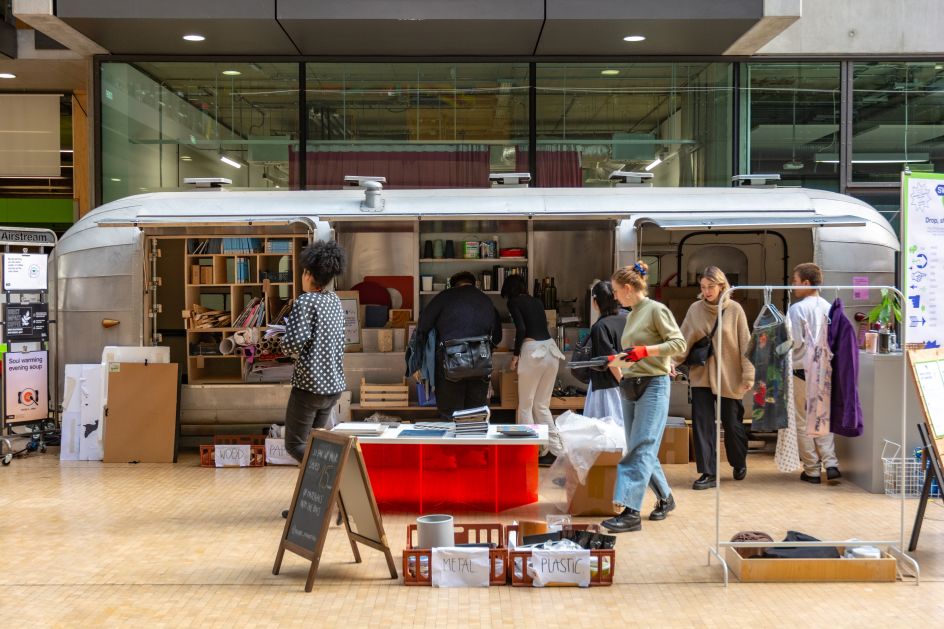
Photography by Jamie Johnson
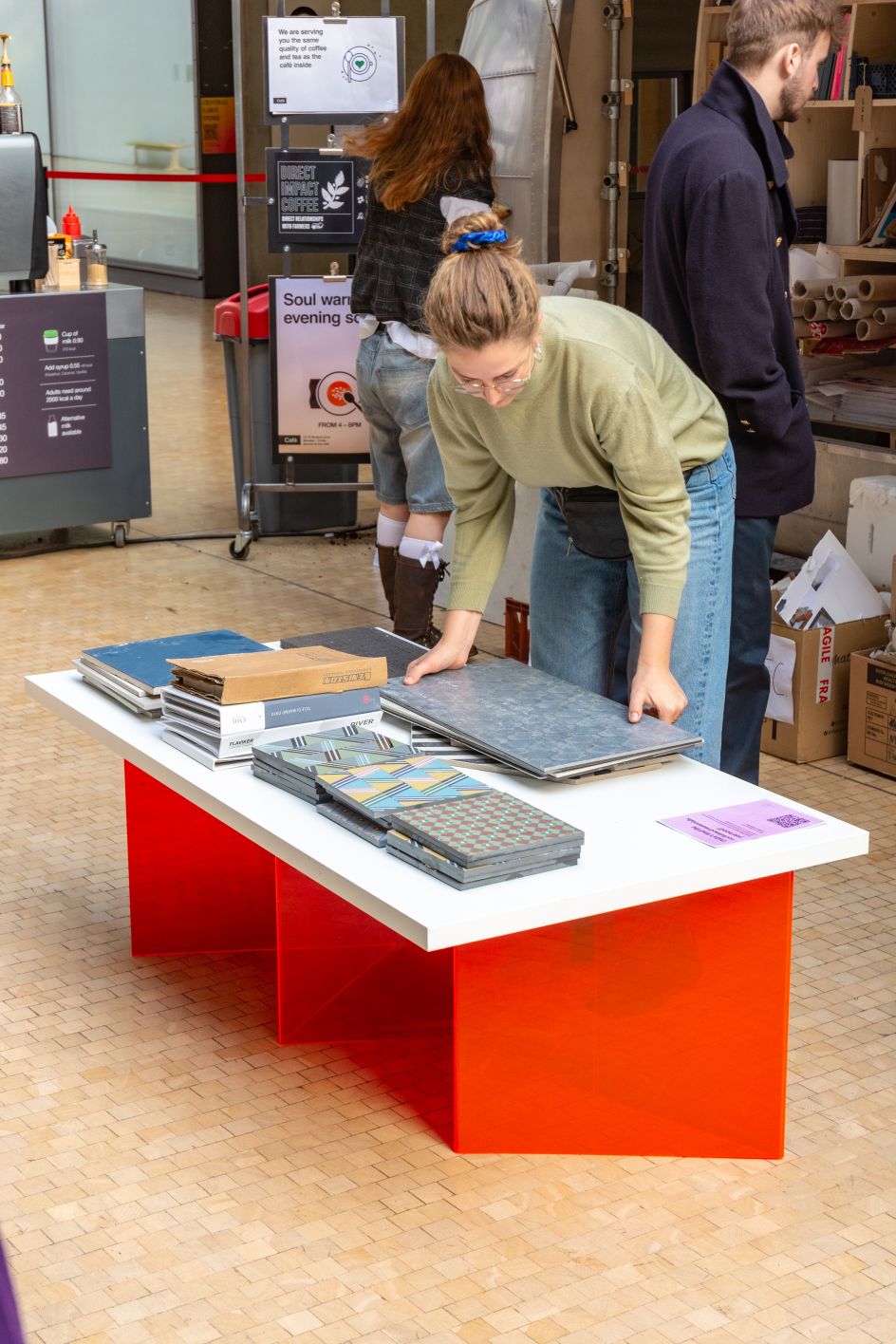
Photography by Jamie Johnson
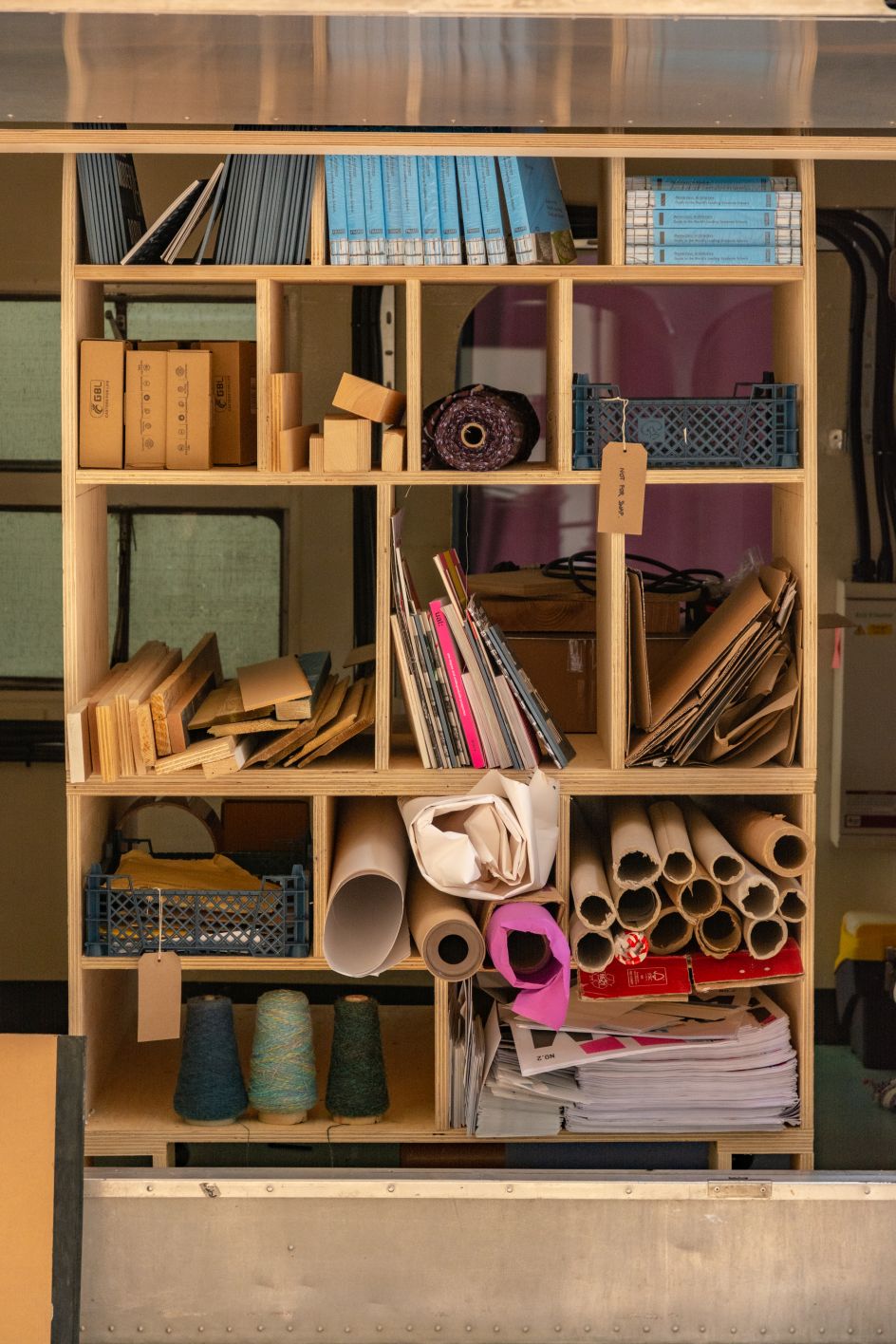
Photography by Jamie Johnson
And that brings us to why they chose such an unusual name. "The idea came from Magritte's painting 'Ceci n'est pas une pipe' [French for 'This is not a pipe']," explains Vassi. "Similarly, we were saying: 'We shouldn't call this tablecloth a tablecloth or something that's waste, it's a textile. That way, we don't bias creatives with a particular way of looking at it in order to expand creativity."
"Magritte's name is René," she continues. "Which also comes from the French word 'renaître' which means to be reborn. We chose Renée with two e's because that's the female form and we are two female founders."
Help from UAL
It's no accident that such a radical project should be birthed at UAL because the university has a strong track record of encouraging innovation in its creative students: you can read about other groundbreaking UAL projects here.
"The opportunities UAL offers to students are incredible," enthuses Vassi. "The system at UAL enables you to test out any ideas you want, thanks to all its different programmes, such as the accelerator scheme. There are many possibilities for doing workshops, reaching out to people, and getting them engaged. From day one we've had people coming to us, writing stories about us, and really trying to help out our idea and our startup through.
"If you want to create change," she adds, "the design world is one of the most exciting fields to be in. Because designers are now being recognised as having crucial roles – both within our ecosystem and throughout the supply chain, basically everything surrounding our lives. Of course, we have had some issues during our path. But without UAL, we'd be in a really different place with our idea and startup."
To learn more about studying a postgraduate degree and the excellent support available, head to the UAL website.


















